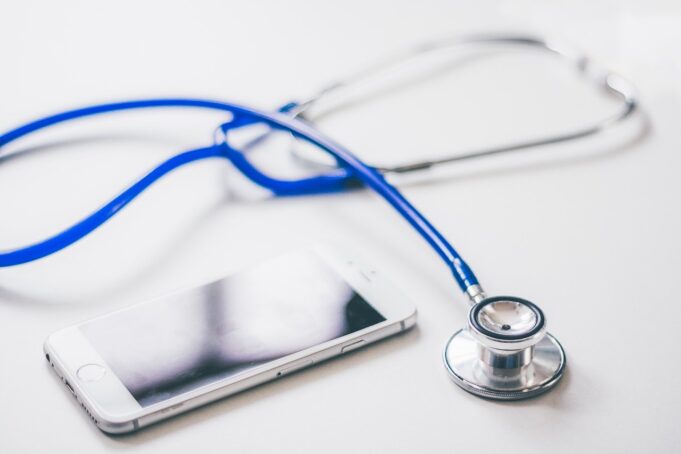Mobile Health Solutions, or mHealth, refers to the use of mobile devices, applications, and technologies to support healthcare and manage health information. As technology advances, mHealth has become increasingly significant, serving as a pivotal player in healthcare innovation and accessibility.
This blog post will traverse the evolution and impact of mHealth, discussing its role in accessibility, remote monitoring, patient engagement, chronic disease management, preventive healthcare, data analytics, and the forthcoming trends set to shape its future.
The Growth of Mobile Health
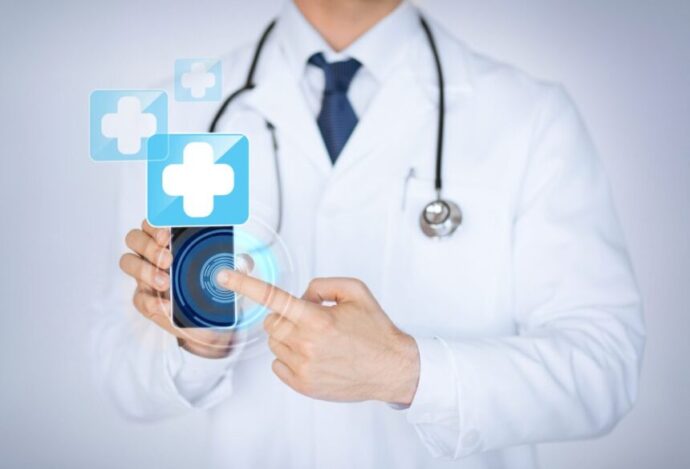
Tracing back to the early 2000s, mHealth has evolved significantly, corresponding to the monumental growth in mobile technology. Initially, mobile devices primarily facilitated communication between healthcare providers. Today, they have become omnipresent in this area of expertise, serving diverse functionalities, from medical references to sophisticated diagnostic tools.
The growth of mHealth mirrors the progression of mobile devices, from basic communication tools to indispensable multi-functional gadgets. These devices have become integral to delivering patient-centered care, enabling timely interventions and fostering doctor-patient relationships. For example, smartphones enable immediate access to medical databases, allowing providers to retrieve essential information at the point of care.
Accessibility and Healthcare
mHealth stands out as a beacon of hope for enhancing healthcare accessibility, particularly for underserved populations. It acts as a conduit to healthcare services for remote or isolated communities, breaking down geographical and socio-economic barriers that have traditionally impeded access to these services.
The potential of mobile healthcare to reach underserved populations is immense, providing avenues for health education, awareness, and remote consultations. For instance, text messaging services can disseminate health information and reminders to communities lacking internet access, while mobile apps facilitate virtual consultations, reducing the need for physical healthcare facilities.
Remote Monitoring and Telehealth
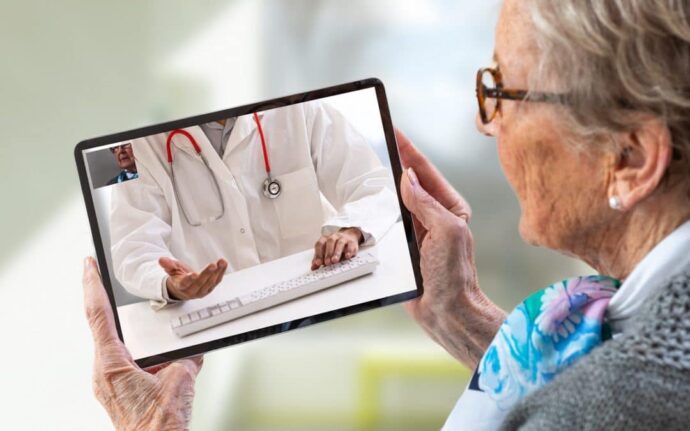
Remote patient monitoring and telehealth are core components of mHealth, allowing healthcare providers to monitor patients’ health data and provide consultations from a distance. This is especially crucial for patients with chronic conditions, needing constant monitoring, and those residing in remote areas with limited access to these facilities.
Mobile solutions power telehealth services, allowing real-time communication between patients and healthcare providers. These interactions are not confined to video calls but extend to remote monitoring devices transmitting vital health data directly to healthcare providers. This real-time data enables immediate interventions, which can be life-saving in critical situations.
Telehealth’s impact is profound, ensuring continuity of care, reducing hospital readmissions, and enabling early interventions. mHealth, in this realm, is revolutionizing the way it is delivered, making it more responsive, adaptable, and patient-centric.
Enhanced Patient Engagement
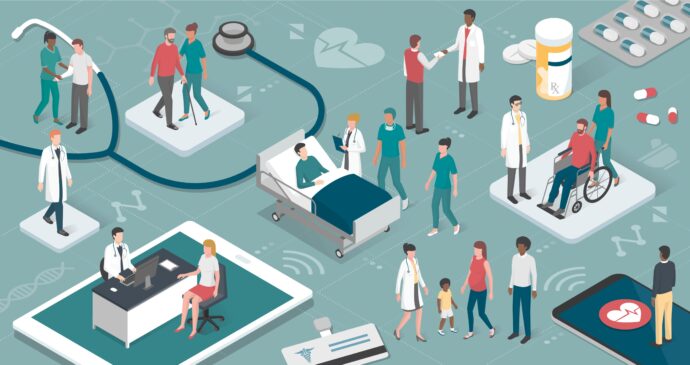
mHealth is a catalyst for patient empowerment, allowing individuals to take an active role in managing their health. Mobile apps and wearable devices enable users to monitor various health metrics, such as heart rate, physical activity, and calorie intake, promoting awareness and accountability.
Patients using mHealth solutions are more informed and engaged in their healthcare journey, contributing to better health outcomes. For example, health tracking apps encourage users to adopt healthier lifestyles by providing personalized feedback and goals, facilitating more effective communication with healthcare providers, and fostering a sense of ownership over one’s health.
Chronic Disease Management
For individuals grappling with chronic conditions, mHealth serves as a constant companion, aiding in disease management and providing necessary support. Apps specialized in diabetes management, for example, can track blood glucose levels, recommend dietary adjustments, and send reminders for medication, making disease management more streamlined and personalized.
Beyond individual health management, mHealth solutions provide invaluable data to healthcare providers, allowing them to tailor interventions and treatments to each patient’s unique needs. This personalized approach to chronic disease management has the potential to significantly improve patient outcomes, reduce healthcare costs, and enhance the overall quality of care.
Preventive Healthcare
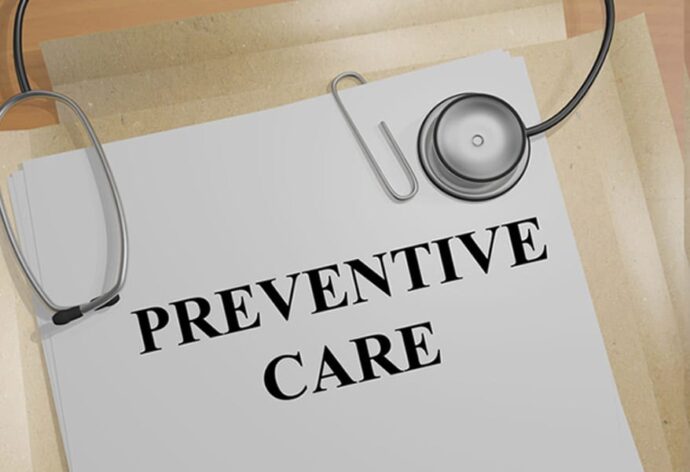
mHealth extends its influence into preventive healthcare, offering solutions aimed at promoting healthy lifestyles and preventing the onset of diseases. Wearables and mobile apps encourage users to stay active, monitor diet, manage stress, and get adequate sleep, building a foundation for holistic well-being.
The transformative power of mHealth in preventive care lies in its ability to provide real-time feedback, personalized insights, and actionable recommendations. It empowers individuals to take proactive steps towards healthier lifestyles, fostering a preventive approach to healthcare, mitigating risks, and reducing the burden on healthcare systems.
Healthcare Data and Analytics
In healthcare, data is invaluable. mHealth solutions act as relentless data collectors, analyzing a myriad of health parameters. This data becomes the backbone for informed decision-making, enabling predictive analytics and contributing to the development of personalized treatment plans.
The role of mHealth in amassing and analyzing health data is instrumental. It provides insights into patient behaviors, treatment efficacy, and disease patterns, fostering an environment of continuous learning and improvement within the healthcare ecosystem.
Security and Privacy Concerns

However, the surge in data collection and sharing through mHealth brings forth pertinent concerns about security and privacy. Healthcare data is sensitive, necessitating stringent measures to prevent unauthorized access and breaches. The industry is incessantly working on fortifying data protection mechanisms, ensuring compliance with regulations, and cultivating trust among users.
Security and privacy in mHealth are not mere technical considerations but are fundamental to the ethical deployment of mobile health solutions. They form the bedrock upon which the credibility and reliability of mHealth solutions rest.
Mobile Health in Developing Countries
The transformative power of mHealth is remarkably evident in developing countries, where it is mitigating healthcare disparities and augmenting healthcare delivery. Success stories abound, showcasing how mHealth initiatives are addressing healthcare gaps, improving health outcomes, and fostering sustainable development.
The potential of mHealth in low-resource settings is colossal. It offers scalable solutions that are cost-effective and adaptable to diverse healthcare needs, becoming an indispensable ally in global health equity pursuits.
Future Trends in Mobile Health
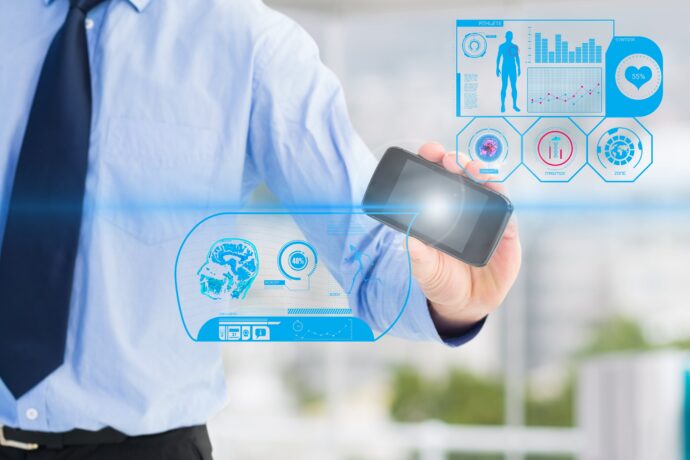
The future of mHealth is paved with innovative technologies such as Artificial Intelligence, Internet of Things, and Blockchain. These technologies are shaping mHealth solutions, making them more intelligent, interconnected, and secure. The evolution of mHealth is intertwined with the broader trajectory of technological advancements, each innovation adding a new dimension to mobile health solutions.
The amalgamation of these emerging technologies is set to redefine the boundaries of mHealth, offering solutions that are more predictive, personalized, and secure, heralding a new era in healthcare that is more inclusive, equitable, and patient-centric.

